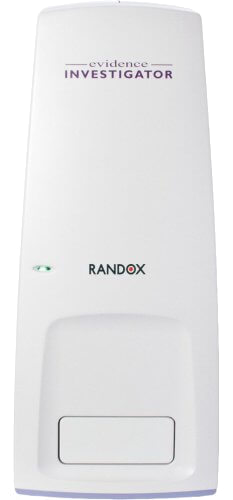Solutions
keyboard_arrow_downServices
keyboard_arrow_downSupport & Resources
keyboard_arrow_downCompany
keyboard_arrow_downContact
Get in touch to discover more
To find out more about the Randox TH17 Biochip Array, enquire now.
Applications in Research, Pharmaceuticals and Patient Stratification
immunology Delivers valuable information for use in research, personalised medicine and development of novel therapeutics
immunology Simultaneously detects four pro-inflammatory cytokines from a single serum sample; IL-23, IL-22, IL-17A and IL-17F
immunology Results generated within 3 hours using Randox patented Biochip technology
The overexpression of cytokines produced by T helper 17 (Th17) cells play a key role in chronic inflammation and several autoimmune diseases, including: rheumatic, endocrinological, gastrointestinal and neurological autoimmune diseases. Novel therapeutics targeting IL-17, IL-22 and IL-23 have showed promise in treating such diseases.
The Randox Th17 Biochip provides a unique solution for the simultaneous detection of multiple inflammatory cytokines from a single patient sample. Such a multi-marker approach will aid research into the pathogenesis of immune disorders, drug development and monitoring of drug efficacy.
Biomarkers Tested
| IL-17A & IL-17F | Interleukin 17 (IL-17) and its closest relative, interleukin 17-F (IL-17F), are expressed by a distinct type of T cells, T helper 17 cells and certain other lymphocytes. These cytokines play key regulatory roles in hose defence and inflammatory diseases. IL-17 is involved in various autoimmune diseases, including: rheumatoid arthritis, psoriasis, multiple sclerosis and inflammatory bowel disease. |
| IL-22 | Interleukin-22 (IL-22) has important functions in host defence at mucosal surfaces as well as in tissue repair. It is unique as a cytokine that is produced by immune cells, including T-helper (Th) cell subsets and innate lymphocytes, but acts only on non-haematopoietic stromal cells, in particular epithelial cells, keratinocytes, and hepatocytes. Although IL-22 is beneficial to the host in many infectious and inflammatory disorders, depending on the target tissue it can be pathogenic due to its inherent pro-inflammatory cytokines, in particular, IL-17. IL-22 is involved in various autoimmune and inflammatory conditions, including: inflammatory bowel disease, psoriasis, rheumatoid arthritis, synovial fibroblasts, Crohn's Disease and ulcerative colitis. |
| IL-23 | Interleukin-23 (IL-23) is a member of the IL-12 family of cytokines with pro-inflammatory properties. It's ability to potently enhance the expansion of T helper type 17 (Th17) cells indicates the responsibility for many of the inflammatory autoimmune responses. IL-23 is found in the skin of patients with psoriasis, in the bowel wall of patients with chronic inflammatory bowel disease, and in synovial membrane of patients with rheumatoid arthritis. |
The Evidence Investigator
The Randox H. Pylori Assay and the GastroPanel Array has been developed for the Evidence Investigator, a semi-automated benchtop immunoassay analyser.
The simultaneous detection of three key stomach biomarkers in conjunction with H. pylori testing will replace individual testing and will permit the efficient screening of at-risk patients. This will ultimately reduce the burden on healthcare systems while at the same time permit the early intervention for gastric disorders.



